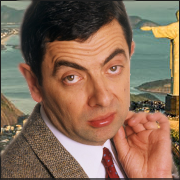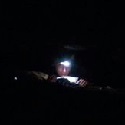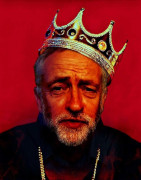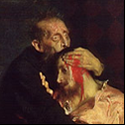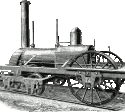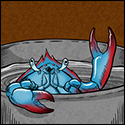|
Great thread, I was always wondering why TBB was lacking something like this. Some books I can recommend.  Crucible of War A fantastic book on the Seven Years War(AKA The French and Indian War) and the effects that helped to bring on the American Revolution. The book is extremely well written (as well as concise) and doesn't feel like a chore at all to read through.  Shattered Sword: The Untold Story of the Battle of Midway This book gives a new perspective on the Battle of Midway and how the Japanese completely blew it by not adapting their strategies as The Pacific War really started to intensify. I used this book to help write my undergrad thesis and it's a great read if you have any interest in military or naval history. The authors are great guys too, I had a nice e-mail exchange with them when I was doing my research.  To Rule the Waves: How the British Navy Shaped the Modern World I loved this book since I'm an avid fan of naval history and this book is great at showing how the Royal Navy took shape from Henry VIII onward. I'd say the only two major criticisms I have with the book is that the bulk of it focuses on the Nelson and Elizabethan era and really feels like it just glances on Gunboat Diplomacy and the 20th century. Otherwise, it's a pretty solid read.  Between the Devil and the Deep Blue Sea: Merchant Seamen, Pirates and the Anglo-American Maritime World, 1700 - 1750 Another one of my favorite books on Maritime/Naval History but more from the ground up perspective. Really good at dispelling a lot of the bullshit myths you hear about pirates in the 18th century as well as the reasons why many seamen joined up with them despite the risks. Also great for showing how seamen where the some of the most vocal guys in the labor movement before it was a thing. The author also goes into great detail about the wage and earnings systems in maritime society.  The Last Days of Innocence: America at War, 1917-1918 A pretty good summary of how the US entered World War I and the effects it had, social and economic. I really liked this book because while the majority of WW1 books I've read are great at explaining the European side of things and how futile many of the military efforts were, this book explains how much turmoil war brought to the social and economic landscape of America. I have a lot more recommendations on The Pacific War but I'll save those for another day. a-dogg posted:Speaking of Gordon Wood, his past review of Middlekauff's Glorious Cause makes it clear that the book particularly stresses the military conflict of the American Revolution, but I have not read the book itself so I can't speak to that. Puukko naamassa posted:The main focus is on the political and military aspects of the war (campaigns, backstage machinations, etc.), but the stories of regular people are also told, both soldiers (and especially on the Japanese side) civilians. To quote the back cover blurb, it weaves "together the historical facts and human drama leading up to and culminating in the war in the Pacific". Having nearly finished it myself, I'd certainly recommend it. Another book that's similar in the human drama vein is Japan at War. Think Studds Terkel's The Good War but focusing on the Japanese perspective instead.
|
|
|
|

|
| # ? Apr 20, 2024 17:39 |
|
First post in this subforum, sorry if I'm outta place. Anyone have suggestions for good historical fiction? I find that I enjoy getting to know the characters as they go through the historical events and politics. I've been reading a lot of Conn Iggulden as well as Jeff Shaara but I don't know if they're "looked down upon" around here.
|
|
|
|
Does anyone have any suggestions for books on 'The Troubles' in Northern Ireland? I'll take anything from broad overviews of the politics involved to a look at day to day life during the period. I've got a very basic understanding of the issues, but I'd like to learn more.
|
|
|
|
Doh004 posted:First post in this subforum, sorry if I'm outta place. George MacDonald Fraser's Flashman series is the benchmark for all good historical fiction. Pick up the first of them, which is simply called Flashman, and wallow in the glory of it. They're the 'memoirs' of a 19th-century Victorian hero, Brigadier Sir Harry Paget Flashman, VC. The conceit is that this much-decorated hero is writing his memoirs in his old age, shortly before the outbreak of the First World War, and being truthful about his exploits for the first time in his life. His exploits being entirely built on lies, cowardice, betrayal, and general poltroonery. They're impeccably researched and accurate (with lots of footnotes by 'the editor' to clarify bits where Flashman's memory is playing him false) and excellently written. Damned funny, too. John Charity Spring fucked around with this message at 00:38 on Feb 1, 2012 |
|
|
|
John Charity Spring posted:George MacDonald Fraser's Flashman series is the benchmark for all good historical fiction. Pick up the first of them, which is simply called Flashman, and wallow in the glory of it. They're the 'memoirs' of a 19th-century Victorian hero, Brigadier Sir Harry Paget Flashman, VC. The conceit is that this much-decorated hero is writing his memoirs in his old age, shortly before the outbreak of the First World War, and being truthful about his exploits for the first time in his life. His exploits being entirely built on lies, cowardice, betrayal, and general poltroonery. They're impeccably researched and accurate (with lots of footnotes by 'the editor' to clarify bits where Flashman's memory is playing him false) and excellently written. Damned funny, too. Don't start these unless you have few weeks when you don't need your spare time for anything also. Also go ahead and pencil in some time to re-read them every few years or so.
|
|
|
|
John Charity Spring posted:George MacDonald Fraser's Flashman series is the benchmark for all good historical fiction. Pick up the first of them, which is simply called Flashman, and wallow in the glory of it. They're the 'memoirs' of a 19th-century Victorian hero, Brigadier Sir Harry Paget Flashman, VC. The conceit is that this much-decorated hero is writing his memoirs in his old age, shortly before the outbreak of the First World War, and being truthful about his exploits for the first time in his life. His exploits being entirely built on lies, cowardice, betrayal, and general poltroonery. They're impeccably researched and accurate (with lots of footnotes by 'the editor' to clarify bits where Flashman's memory is playing him false) and excellently written. Damned funny, too. I will have to check it out. Sounds interesting and from a different time period which will be a good change of pace. Thanks 
|
|
|
|
Doh004 posted:First post in this subforum, sorry if I'm outta place. Read some Mario Vargas Llosa, especially The Feast of the Goat and War of the End of the World (and be prepared for people to ask you if you're reading World War Z because they kinda look similar.) If you're into art in any capacity and are interested in Paul Gauguin and his lesser-known-but-still-famous grandmother, Flora Tristan, read The Way to Paradise. I've been wanting to make a MVL megathread but I'm not sure how interested people would be and tbqh I haven't thought much beyond the title, which would be "The Way to the End of the Goat: Mario Vargas Llosa Megathread!"
|
|
|
|
Thanks for that post - all those books look really interesting. I've never read any Llosa before, and even though I've got an awful lot of books on my reading list already, they're definitely going on.
|
|
|
|
baw posted:Read some Mario Vargas Llosa, especially The Feast of the Goat and War of the End of the World (and be prepared for people to ask you if you're reading World War Z because they kinda look similar.) If you're into art in any capacity and are interested in Paul Gauguin and his lesser-known-but-still-famous grandmother, Flora Tristan, read The Way to Paradise. I've been wanting to make a MVL megathread but I'm not sure how interested people would be and tbqh I haven't thought much beyond the title, which would be "The Way to the End of the Goat: Mario Vargas Llosa Megathread!" He wrote The Perpetual Orgy, which is a pretty great essay on Madame Bovary. I wouldn't understand that book anywhere near as much without Llosa's book.
|
|
|
|
I recently finished Cinderella's Sisters: A Revisionist History of Footbinding by Dorothy Ko, and it is one of the most interesting books I've read in quite a while. Ko is both a good writer and a good historian, and it really shows. She does an excellent job integrating primary sources into her narrative and analysis and also finding voices (especially women's voices!) that hadn't been used before. I highly recommend this book for anyone interested in Chinese history, women's and gender history, or the social construction of beauty.
|
|
|
|
Just now finishing Before the Revolution by Daniel K Richter. The first half was a very interesting look at European colonization of North America by trying to frame the actions of both Europeans and Natives in the Native perspective, or at least not entirely through the European lens that written sources provide. However, the second half has been kind of drudgery, mostly because of the increasing focus on European and colonial economies. If you can find it at a library, I'd definitely read at least the first 100 or so pages.
|
|
|
|
Just finished reading The Wages of Destruction: The Making and Breaking of the Nazi Economy, by Adam Tooze A fascinating look at the Nazi war economy that dispels a lot of the economic myths that surround the German war economy and exposes the economic reasoning behind some of Hitler's more odd military decisions. I should warn you though it can get a bit heavy on the economics at times but its still an absolutely brilliant need if you want to know how the Germans organised their wartime economy.
|
|
|
|
|
Ferrosol posted:Just finished reading The Wages of Destruction: The Making and Breaking of the Nazi Economy, by Adam Tooze A fascinating look at the Nazi war economy that dispels a lot of the economic myths that surround the German war economy and exposes the economic reasoning behind some of Hitler's more odd military decisions. I should warn you though it can get a bit heavy on the economics at times but its still an absolutely brilliant need if you want to know how the Germans organised their wartime economy. This is also a great read, and if you're interested in studying the Third Reich, your first stop should be Richard Evans' definitive trilogy (the last volume of which came out in 2009,) and then you can branch out into other aspects that interest you. There are a lot of new histories of the Third Reich and World War II in general, so right now is an awesome time to start reading about it.
|
|
|
|
baw posted:This is also a great read, and if you're interested in studying the Third Reich, your first stop should be Richard Evans' definitive trilogy (the last volume of which came out in 2009,) and then you can branch out into other aspects that interest you. There are a lot of new histories of the Third Reich and World War II in general, so right now is an awesome time to start reading about it. Seconding this recommendation of Evans' trilogy. Bendersky's A Concise History of Nazi Germany is also a good place to start. If you're (or anyone else is) looking for more specific recommendations for social history-type works, feel free to ask me in-thread or shoot me a PM. I'm a historian and this is a field where I've done a lot of work, so I can recommend a lot of titles and authors.
|
|
|
|
nerdpony posted:Seconding this recommendation of Evans' trilogy. Bendersky's A Concise History of Nazi Germany is also a good place to start. If you're (or anyone else is) looking for more specific recommendations for social history-type works, feel free to ask me in-thread or shoot me a PM. I'm a historian and this is a field where I've done a lot of work, so I can recommend a lot of titles and authors. Well poo poo I'm into the Third Reich as a political and economic phenomenon, along with the Nuremberg trials (probably because they expose a lot of the underlying psychological and political motivations of the participants.) Even though it's impossible to talk about the Third Reich in any capacity without talking about the military, I'm far more interested in how the whole movement was possible, rather than specific military actions. I've read Manzowar's Hitler's Empire and Evans' trilogy and Tooze's economic history. For the Nuremberg trials I've read Persico's account, Goldensohn's and Gilbert's interviews, and Interrogations by Overy (which kinda went over a lot of the things from Goldensohn's and Gilbert's accounts.) I've also read a few military accounts (Keegan, Gilbert, Hastings and Hart) but for me the most interesting thing is how the Nazis came to power and were able to brainwash so many people in a modern and industrial country. If there is anything more in-depth that you think I'd be interested in, please post it here. I'm always on the lookout for more. The most I've read of the interbellum period have been the accounts in general histories of the Third Reich, and if you could recommend anything that focuses on those years it would be pretty cool too.
|
|
|
|
Speleothing posted:Just now finishing Before the Revolution by Daniel K Richter. The first half was a very interesting look at European colonization of North America by trying to frame the actions of both Europeans and Natives in the Native perspective, or at least not entirely through the European lens that written sources provide. I just ordered this book because I read a review of it in William & Mary Quarterly, and I'm really looking forward to it. The reviewer suggests Richter's got a Cronon-esque grasp on environmental history but also effectively weaves in economic history, so that excites me. An amazon review said the book seems mostly like a collection of undergraduate lectures, is that the feeling you got from it? nerdpony posted:Seconding this recommendation of Evans' trilogy. Bendersky's A Concise History of Nazi Germany is also a good place to start. If you're (or anyone else is) looking for more specific recommendations for social history-type works, feel free to ask me in-thread or shoot me a PM. I'm a historian and this is a field where I've done a lot of work, so I can recommend a lot of titles and authors. I think you should mention some in this thread anyway!
|
|
|
|
Any recommendations for books about the US at the turn of the 20th century that aren't focused on T. Roosevelt? According to local libraries and bookstores, it seems like US history went "... Civil War, Custer, Roosevelt, WWI."
|
|
|
|
 I found this in my local library. It's a pretty good read so far, I just finished the section on the first crusade. Should give a lot more context for the next time I play Crusader Kings.
|
|
|
|
I've got a couple: Andrew Jackson: His Life and Times by H.W. Brands is a brisk, in-depth account of one of America's more complex Presidents. I didn't really know anything about Jackson going in, but I found the book extremely engaging and well-written. Brands makes a great narrative out of the life of Jackson, who was born to a widowed mom, grew up poor, and distinguished himself as a military leader to the point where he was elected President. He delves into the motivation and events behind Jackson's intense sense of egalitarianism, his hatred of political machinery and the divorce of government from the involvement of the everyday man. He also doesn't shy away from the bad stuff about Jackson- his outspoken slave ownership, his violent personality and his policies toward the Native Americans, culminating in the Trail of Tears.  Lincoln's Melancholy, by Joshua Wolf Shenk. An insightful, sometimes poignant look into the life of Lincoln and the undiagnosed chronic depression he battled his whole life. The writer starts with a look into the nature of clinical depression as defined by modern medicine, and compares that to what Lincoln called his "melancholy". He reveals that some aspects of Lincoln's life- particularly his well-known love of jokes and the faith he developed while in office- were coping mechanisms Lincoln developed to deal with his depression. It's a pretty quick read, but I found it fascinating both as a look at Lincoln and a cases study of depression. As far as I could tell it seemed pretty objective, too; there were a couple places where it felt like the author was reaching for some significance that maybe wasn't there, but overall it was very good. Can anybody recommend a good history of the French Revolution? I've always been intrigued by it but there doesn't seem to be too much accessible reading on the subject.
|
|
|
|
baw posted:Hitler's Empire How was this? I've been interested in reading it for awhile so I'm looking for someone to nudge me towards it.
|
|
|
|
Tbe best book I've read recently: The Bloody White Baron: The Extraordinary Story of the Russian Nobleman Who Became the Last Khan of Mongolia, by James Palmer. A really detailed, well-written, and fascinating account of one of history's more eccentric characters, Roman Ungern von Sternberg, an ethnically Baltic German who became a Russian nobleman and became a minor Russian hero of World War I. Being a strict monarchist, he backed the Whites in the Russian Civil War. With the goal of re-establishing the Mongol Empire and the Russian monarchy, Ungern and his fiercely loyal troops fought their way across Russia, killing Jews and Bolsheviks (his two least favorite groups of people), until they reached Mongolia, where he managed to wrest control from the Chinese. In Mongolia, the local peasantry considered Ungern a god-king and reincarnation of Genghis Khan. Ungern invaded Siberia to support the many anti-Bolshevik uprising, but the Reds crushed his army, captured Ungern, and executed him soon after.
|
|
|
|
Boondock Saint posted:How was this? I've been interested in reading it for awhile so I'm looking for someone to nudge me towards it. I thought it was fantastic. It was pretty much perfect for my interests because the military conquests and defeats are mentioned in passing because the book mostly focuses on how the Reich was administered. It really shows just how poorly-run the entire mess was from the very start, with brutality and loyalty often being the most important qualifications for any post in the empire. And if you've read Manzowar before, you'll know that he knows how to write a gripping historical narrative. It gave it five stars on goodreads.com.
|
|
|
|
baw posted:I thought it was fantastic. It was pretty much perfect for my interests because the military conquests and defeats are mentioned in passing because the book mostly focuses on how the Reich was administered. It really shows just how poorly-run the entire mess was from the very start, with brutality and loyalty often being the most important qualifications for any post in the empire. And if you've read Manzowar before, you'll know that he knows how to write a gripping historical narrative. Sounds good to me. I've always felt the scholarship on how the Nazi's actually ran their "empire" was quite lacking, so this seems like it will be a great start before I move on to the Evans trilogy.
|
|
|
|
 Newton and the Counterfeiter by Thomas Levenson was a book I enjoyed a lot. Between revolutionizing mathematics and physics, his exploits with alchemy, his work regarding optics and discrediting fellow members of the RS, Newton had another little job, reforming the unsustainable and nearly bankrupt British Mint and with it the whole way money making and especially counterfeit protection worked until then.
|
|
|
|
Decius posted:...reforming the unsustainable and nearly bankrupt British Mint and with it the whole way money making and especially counterfeit protection worked until then. If you're interested in the history of counterfeiting, copyright, intellectual property, and piracy, I'd recommend Adrian Johns' Piracy. It's long, dense, and occasionally dry... but also extremely comprehensive and well-researched. I read most of it for a historiography seminar last semester, and learned a ton about the history of printing, books, pharmaceuticals, and so much more.
|
|
|
|
Anyone have some good recommendations for Russian history pre-20th century? I'm especially interested in Ivan the Terrible and his formation of the Tsardom of Russia, but I haven't been able to find a decent looking book on him. I already have Peter the Great: His Life and World by Robert K. Massie (which is pretty great), and I know of his other books on Russian history.
|
|
|
|
Does anyone know of any good books that deal with British history? Specifically I'd love some sort of detailed guide on the history of the British parliament And/or I'd love a book that deals with the entirety of recorded British history, from Celtic times up to the modern age (I've read some of the free books on Kindle on the topic, but they seem to be mostly from (roughly) the Victorian era and quite biased.
|
|
|
|
This is a real table-breaker in dead-tree form, but well worth it: http://www.amazon.com/London-Biography-Peter-Ackroyd/dp/0385497717/ref=sr_1_4?ie=UTF8&qid=1328827394&sr=8-4 It's not a history of kings and queens, it's a history of ordinary people (best exemplified by the bits where it mentions how various and numerous monarchs issued various and numerous proclamations to the effect that the growth of London Must Be Curtailed At All Costs, all of which were politely ignored); but it does have the wide thousands-of-years span you're looking for. It's a decent enough starting point, since an awful lot of things in English/British history either happened in London or had some sort of consequence for London. Now, for a classic kings-and-queens story you really can't beat the seminal Our Island Story, which is by no means an ideal treatment of history (some parts of it are recountings of myths or legends, some parts of it are patrician and patronising, some parts of it treat Shakespeare as a reputable historian), but it's a good starting point for you to read through, with constant convenient marker points as the monarchs come and go, and see what makes you think "This period sounds interesting, I'll find out a bit more about it" or "I'm not sure I agree with that, I'll see what other people have to say about the time". What it'll also do is give you a solid grounding in the British national myth, which is vital when so much of history today is "The Real Story of the Putney Debates", or "Untold Histories of Life During The Anarchy"; it helps if you know the classical perspective that's trying to be exploded. If you do read it, please make sure and read 1066 And All That right afterwards, though. The trouble with trying to find something more modern with such a grand scale is that it's really not possible to do any one part of history the justice it deserves, and explore it in the depth that it deserves, in the context of a Grand History; so naturally the tendency has been towards dealing with a period in depth - you also have to consider the rise of social history, the recognition that there's more to history than kings and queens and battles and lords. Being Victorian, the Victorians didn't really have a problem with making trivial assertions about things, ignoring things that didn't fit a certain narrative, and pretending that monarchs and battles are all that mattered. edit: On the subject of Parliament, here is something that looks interesting: http://www.histparl.ac.uk/ Trin Tragula fucked around with this message at 00:24 on Feb 10, 2012 |
|
|
|
Trin Tragula posted:This is a real table-breaker in dead-tree form, but well worth it:
|
|
|
|
And after you've read that, do yourself a huge favor and read E.P. Thompson's The Making of the English Working Class. It is easily one of the best works of social history I have ever read.
|
|
|
|
I wouldn't mind some recommendations for medieval British history. I'm particularly interested in stuff surrounding Edward I-III and the Hundred Years War, or the Wars of the Roses. On a whim, I picked up this book:  which is a really awesome account of Roger Mortimer. This guy held the border between England and Wales for years, then restored order to a wartorn Ireland after a Scottish invasion. Then the king has Mortimer and his uncle arrested, and Roger escapes the Tower of London, beds the Queen of England, deposes Edward II and rules from the background using Edward III as a front for three years.
|
|
|
|
I really enjoyed reading Phase Line Green: The Battle for Hue, 1968 by Nicholas Warr last year. It's a detailed account of one of the most notorious battles in the Vietnam war, where the battlefield was a dense city including a medieval citadel instead of the jungle guerrilla warfare. The battle was so destructive and terrible that it's overlooked in popular history sometimes. This type of battle is a grim reminder of the more current city wide battles America has fought in Iraq. A short history book at only 235 pages, its a very exciting and sobering read. http://www.amazon.com/Phase-Line-Green-Battle-1968/dp/1557509115
|
|
|
|
Loeb CL posted:Tbe best book I've read recently: Oh poo poo, I just remembered that there was an alternate history video game where this dude beats the reds and becomes the new ruler of a Russo-Mongolian empire. Never realized his character was based on a real person until now!
|
|
|
|
Boondock Saint posted:Great thread, I was always wondering why TBB was lacking something like this. I'm about halfway through this so far as some general background reading for my dissertation and it's a superb piece of work.
|
|
|
|
Anybody know a good Stalin biography? Context: Last week, I saw a documentary showing of Joseph Stalin's funeral and the memorial services held in the other republics of the U.S.S.R. AFterwards, I thought "well, anyone who received that kind of a sendoff must've done something right," and I started to read a little bit about his life story. Now, I'd like to go a little deeper. Any suggestions?
|
|
|
|
Soundtrack To Mary posted:Anybody know a good Stalin biography? This book starts from Stalin's childhood, and goes through every facet of his life. I found it really hard to put down. I highly recommend.
|
|
|
|
Coolodile posted:
This is an excellent book on the crusades. the last book I read was God's War, and that was an overly harsh read. Very academic. This one was a lot more enjoyable.
|
|
|
|
 Picked this up by chance on holiday. An excellent narrative history on the end days of the Roman Republic, this one got me started on reading about Rome.
|
|
|
|
rantAK posted:Picked this up by chance on holiday. An excellent narrative history on the end days of the Roman Republic, this one got me started on reading about Rome. For anyone who might be unaware, Tom Holland has written two other history books in the same style that are just as good: Persian fire about the persian invasion of Greece and Millenium about medieval Europe around the turn of the millenium. He also has In The Shadow Of The Sword, a book about the rise of the Arabian empire, coming out early in April.
|
|
|
|

|
| # ? Apr 20, 2024 17:39 |
|
Anyone know a good book or two on the history of US atomic bomb testing? Not so much the Manhatten Project, but all the testing that came after Trinity. As a side note, isn't this the craziest goddamn thing: 
|
|
|











